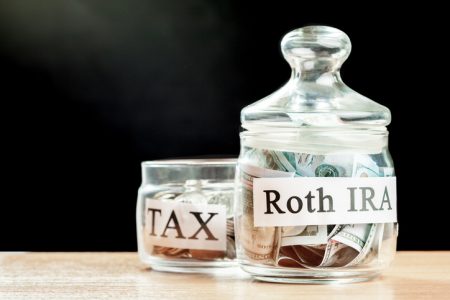Tapping into your retirement savings early may seem like a risky idea, but there are many reasons why you may have to take money from your 401(k) before retirement. These accounts are meant to support you in your later years, yet unexpected financial challenges can force your hand at using your funds sooner. Before doing so, make sure you understand the consequences. The IRS typically adds a 10% penalty to withdrawals made before age 59½, though certain exceptions allow you to take money out without the extra cost. Talking with a financial advisor can help you decide if an early withdrawal makes sense for your situation.
401(k) Withdrawal Rules
Taking money from your 401(k) before age 59½ usually means paying more. The IRS adds a 10% penalty on top of regular income taxes, which can take a big chunk out of what you actually get and hurt your long-term savings.
Some plans allow hardship withdrawals for urgent needs like medical bills, tuition, buying a home, or avoiding eviction. These may skip the 10% penalty in certain cases, but you’ll still owe income taxes. Not every plan offers this option.
Another choice is borrowing from your 401(k). You can borrow up to 50% of your vested balance, with a $50,000 limit, and repay it with interest over five years (longer if it’s for a primary home). This avoids taxes and penalties if payments are on time, but your money won’t be invested while the loan is out. Often, you can’t make new contributions during the loan, and if you leave or lose your job, the balance may become due immediately or count as an early withdrawal with taxes and penalties.
After age 73, the IRS requires you to start taking required minimum distributions (RMDs). These withdrawals are based on your account balance and life expectancy. Missing an RMD can result in a 25% tax penalty on the amount that you were required to withdraw.
Early Withdrawal Options From Your 401(k)

A hardship withdrawal lets you take money from your 401(k) if you have an urgent financial need, such as paying medical bills, buying a primary home, covering tuition, or avoiding eviction or foreclosure. These withdrawals can help in emergencies, but they usually trigger a 10% penalty if you are under age 59½, plus regular income taxes. Employers must also withhold 20% for taxes, so if you need $10,000, you’ll have to take out more to cover the withholding.
If you leave your job in or after the year you turn 55, you may qualify for the Rule of 55. This rule allows you to take money from your current employer’s 401(k) without paying the 10% penalty. It can be useful for early retirement or if you lose your job later in your career and need access to savings.
Another option is the SEPP program, also known as Rule 72(t). This lets you take a series of equal payments from your 401(k) for at least five years or until you turn 59½, whichever is longer. The IRS sets formulas for calculating these payments. While this method avoids the penalty, you will still owe income taxes on the withdrawals.
You can also access your 401(k) without penalty if you become totally and permanently disabled. In addition, you may qualify for penalty-free withdrawals to cover unreimbursed medical expenses that exceed 7.5% of your adjusted gross income. These exceptions can offer relief in difficult situations, but they usually require detailed documentation.
How to Take an Early Withdrawal From Your 401(k)
Taking an early withdrawal from your 401(k) means accessing your retirement funds before reaching age 59½. While your 401(k) is designed as a long-term retirement savings vehicle, certain life circumstances might necessitate tapping into these funds sooner. Before making this decision, it’s important to understand that early withdrawals typically come with significant financial consequences.
To take an early withdrawal from your 401(k), contact your plan administrator to request the appropriate forms. You’ll need to specify the amount and reason for the withdrawal. After submission, processing typically takes 1-2 weeks. Remember that your employer may have specific requirements or limitations beyond IRS regulations.
Alternatives to Early 401(k) Withdrawals
When financial needs arise, many people consider tapping into their retirement savings. However, withdrawing from your 401(k) often comes with penalties and tax consequences that can significantly impact your long-term financial health. Before making this decision, consider the following alternatives to 401(k) withdrawals that might better serve your financial situation:
- Emergency fund: Turn to your emergency savings before touching retirement accounts. These funds are specifically designed to cover unexpected expenses without disrupting your long-term financial plans. Aim to maintain three to six months of essential expenses in an easily accessible account to avoid the need for early retirement fund withdrawals.
- Personal loan: Consider a personal loan from a bank, credit union or online lender for short-term financial needs. Personal loans typically offer fixed interest rates and repayment terms, making them more predictable than the potential long-term costs of early retirement withdrawals. Compare rates carefully to ensure you’re getting the most competitive terms.
- Home equity loans: If you own a home with equity, a home equity loan or line of credit might provide access to funds at lower interest rates than other borrowing options. These loans use your home as collateral, potentially offering tax-deductible interest payments depending on how you use the funds. Remember that these options put your home at risk if you can’t make payments.
Bottom Line

You may be able to take money from your 401(k) before retirement if you face a financial emergency or big life change. Normally, early withdrawals come with taxes and a 10% penalty, but there are exceptions. Options like hardship withdrawals, 401(k) loans, or the Rule of 55 may let you avoid the penalty. Each choice has rules and trade-offs, so think about how it could affect your future retirement.
Retirement Planning Tips
- A financial advisor can help you mitigate risk for your portfolio. Finding a financial advisor doesn’t have to be hard. SmartAsset’s free tool matches you with vetted financial advisors who serve your area, and you can have a free introductory call with your advisor matches to decide which one you feel is right for you. If you’re ready to find an advisor who can help you achieve your financial goals, get started now.
- If you want to diversify your retirement portfolio, here’s a roundup of 13 investments to consider.
Photo credit: ©iStock.com/AndreyPopov, ©iStock.com/TrixiePhoto, ©iStock.com/Moment Makers Group
Read the full article here









